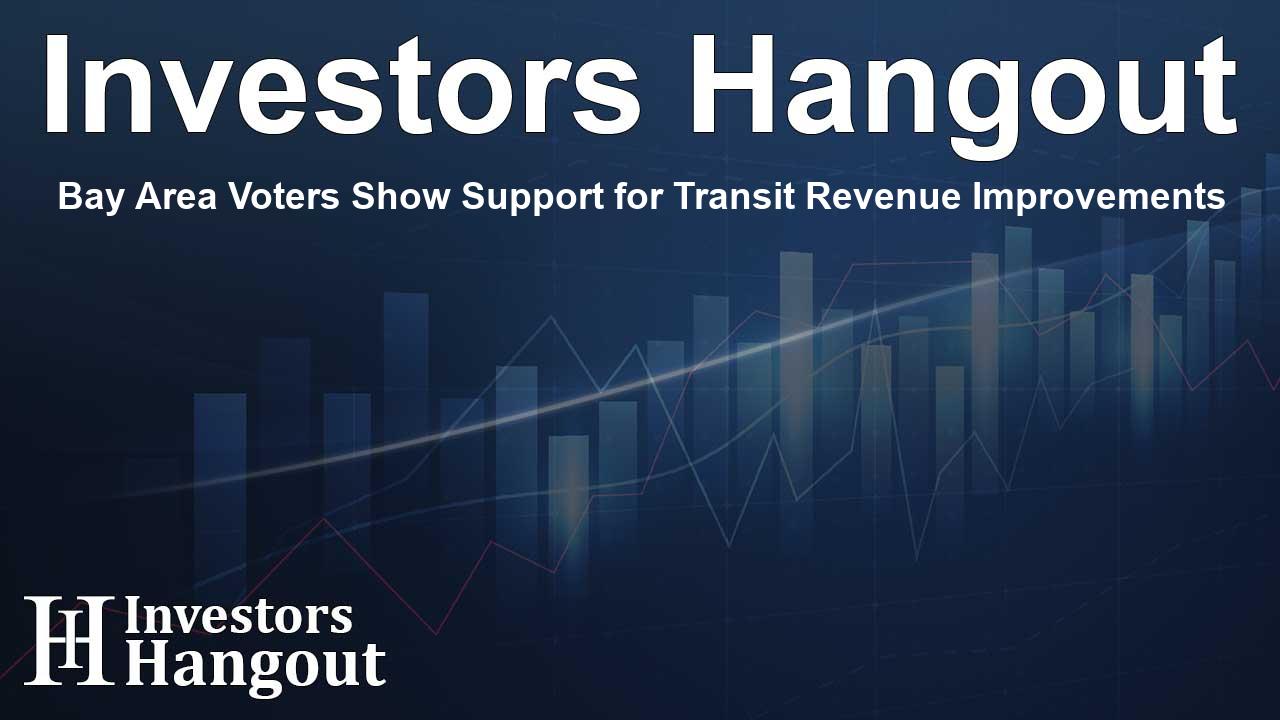Bay Area Voters Show Support for Transit Revenue Improvements

Majority of Bay Area Residents Favor Transit Revenue Measures
Recent polling indicates that a significant number of voters in the Bay Area are expressing strong support for potential transit revenue measures aimed at enhancing public transportation services. The poll results were shared by members of the Metropolitan Transportation Commission (MTC) and the Association of Bay Area Governments (ABAG). This polling, conducted by EMC Research, reflects growing concerns regarding the future of transit operations amidst funding challenges.
Understanding the Poll Results
The January poll revealed that about 54% of voters across four counties are in favor of a half-cent sales tax. This tax aims to protect vital transit services from potential cuts affecting agencies like BART, Caltrain, and Muni. Additionally, the survey indicated 55% of support for a variable tax structure which proposes different sales tax rates across the counties.
Acknowledging the Need for Action
These findings, while heartening, highlight a significant hurdle. As MTC Commissioner Sue Noack pointed out, maintaining services through traditional measures requires at least a two-thirds majority. This suggests a need for broader public engagement to build a viable initiative.
Voter Concerns and Public Transit
The poll revealed that while transportation is not at the forefront of voter concerns—issues such as affordable housing and crime ranked higher—there is significant awareness regarding the fiscal needs of public transit. Over two-thirds of respondents acknowledged that public transit systems are in dire need of increased funding.
Importance of Public Transit in Recovery
Senator Jesse Arreguín emphasized the essential role of transit for many residents, particularly those who depend on public transport for their daily commutes. He articulated that as the Bay Area emerges from the pandemic, ensuring robust funding for transit systems is critical for economic resilience.
Exploring Tax Frameworks
Another tax framework assessed by the researchers included a mix of a half-cent sales tax and a parcel tax aimed at funding improvements not only for transit but also for local infrastructure, such as pothole repairs. Initial support for this combined tax structure was promising at 51%, although it decreased to 44% once the respondents heard counterarguments.
The Journey Ahead for Transit Improvement
Senator Scott Wiener underlined the necessity of sustaining public support for essential transportation frameworks. He affirmed that ongoing efforts to educate the public about improvements in safety and reliability of transit services are crucial as the situation develops. The goal is to ensure that Bay Area residents fully recognize the value and vital role that transportation plays in their communities.
As December 2024 saw the MTC approving provisions allowing voters to consider future measures, the emphasis now lies on accountability and enhanced customer experience as conditions for funding. These measures aim to ensure better oversight and efficiency in transit operations.
Conclusion: A Unified Approach for the Future
The MTC’s role encompasses transportation planning and coordination across the nine-county Bay Area. The agency is committed to working collaboratively with local entities to enhance the overall transit experience, ensuring a unified approach is taken toward the preservation and improvement of public transportation in the region. Thesepoll results affirm the importance of collective efforts to boost funding and support for public transit as the Bay Area continues to grow and evolve.
Frequently Asked Questions
What do the poll results indicate about transit funding in the Bay Area?
The poll shows that a majority of voters support a half-cent sales tax to prevent transit service cuts, indicating a strong public desire for improved funding.
Why is public transit crucial for the Bay Area?
Public transit plays a vital role in ensuring essential workers and low-income families can access reliable transportation, contributing to a resilient local economy.
What challenges do transit proposals face?
Proposals need to achieve at least a two-thirds majority to be placed on the ballot, which requires significant public engagement and coalition building.
How did the public react to potential tax frameworks?
Support for a variable tax framework was noted, but it declined when respondents were exposed to opposing views, reflecting the need for careful communication around tax measures.
What role does the MTC play in transit planning?
The MTC is responsible for planning and coordinating transportation efforts across the Bay Area, aiming to improve public transit and ensure accountability in funding and service delivery.
About The Author
Contact Lucas Young privately here. Or send an email with ATTN: Lucas Young as the subject to contact@investorshangout.com.
About Investors Hangout
Investors Hangout is a leading online stock forum for financial discussion and learning, offering a wide range of free tools and resources. It draws in traders of all levels, who exchange market knowledge, investigate trading tactics, and keep an eye on industry developments in real time. Featuring financial articles, stock message boards, quotes, charts, company profiles, and live news updates. Through cooperative learning and a wealth of informational resources, it helps users from novices creating their first portfolios to experts honing their techniques. Join Investors Hangout today: https://investorshangout.com/
The content of this article is based on factual, publicly available information and does not represent legal, financial, or investment advice. Investors Hangout does not offer financial advice, and the author is not a licensed financial advisor. Consult a qualified advisor before making any financial or investment decisions based on this article. This article should not be considered advice to purchase, sell, or hold any securities or other investments. If any of the material provided here is inaccurate, please contact us for corrections.
